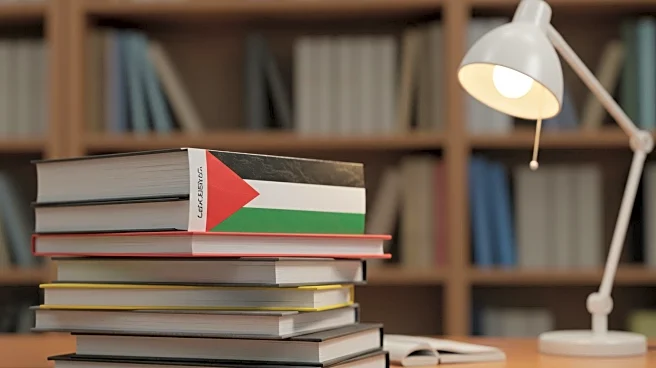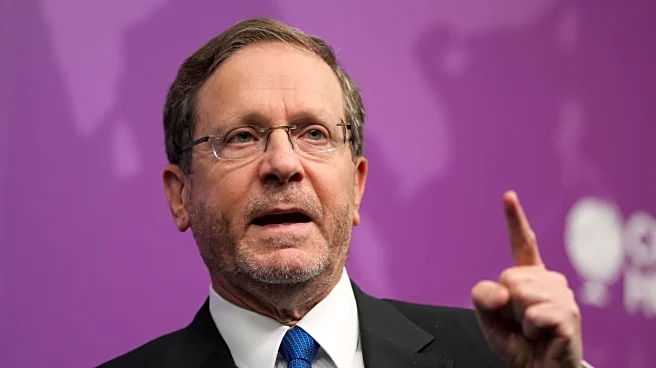What's Happening?
The Harvard Educational Review has canceled a special issue focused on education and Palestine, raising concerns about academic freedom and censorship. The issue, which was set to be published this summer, included articles on Palestinian rights and education. The cancellation follows a request for an unusual 'risk' review by Harvard's Office of the General Counsel, which was met with resistance from the authors involved. The Harvard Education Publishing Group cited procedural issues as the reason for the cancellation, but critics argue this is part of a broader trend of suppressing discourse on Palestine in U.S. universities.
Why It's Important?
The cancellation of the special issue highlights the ongoing challenges faced by scholars advocating for Palestinian rights in the U.S. academic landscape. It underscores the 'Palestine exception,' where institutions restrict freedom of expression related to Palestine. This development is significant as it reflects the broader political climate influenced by the Trump administration's policies, which have been accused of using antisemitism claims to suppress academic and student activism. The decision may impact future scholarly work and discussions on Palestine, affecting both academic freedom and the representation of Palestinian issues in educational discourse.
What's Next?
The cancellation may lead to increased scrutiny and debate over academic freedom in U.S. universities, particularly regarding topics related to Palestine. Scholars and activists may push back against such censorship, advocating for more open discourse and challenging the adoption of definitions that equate criticism of Israel with antisemitism. The incident could also prompt other institutions to reconsider their policies on academic freedom and the handling of politically sensitive topics.
Beyond the Headlines
The broader implications of this cancellation extend to the ethical and cultural dimensions of academic freedom. It raises questions about the role of universities in fostering open dialogue and the potential consequences of suppressing certain viewpoints. The situation may contribute to a chilling effect on scholarship related to Palestine, affecting the diversity of perspectives in academic research and discourse.










